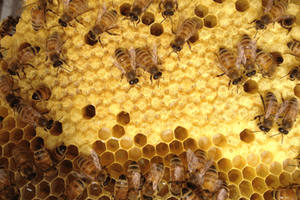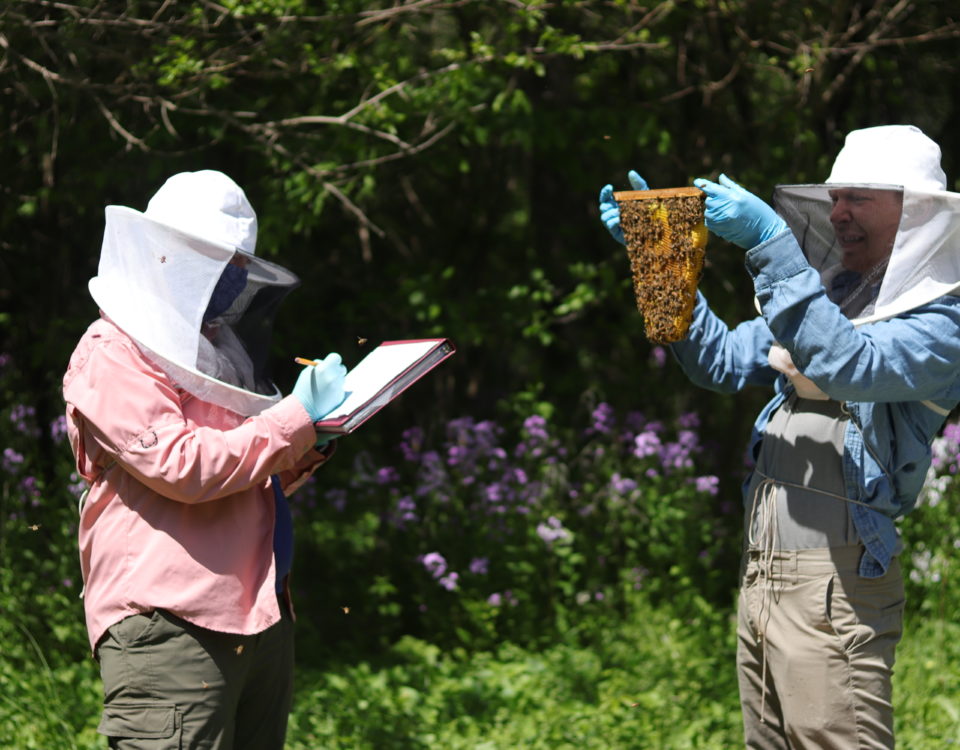- All-In-One Beekeeping for the Bees
- +1-608-728-8233
- info@beepods.com
The Honey Vegan Debate
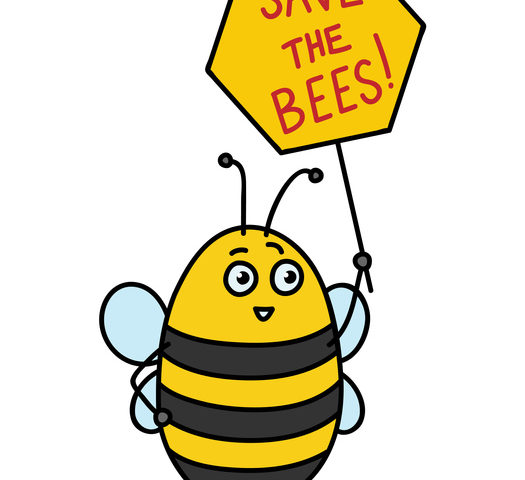
A little bee how a cartoon character holds a hexagonal placard in her hand with slogan "Save the Bees!"
The popularity of veganism has skyrocketed in the past few years and there has been much debate within all of this talk about honey. Is honey vegan? Why does it matter if honey is vegan? What is veganism?
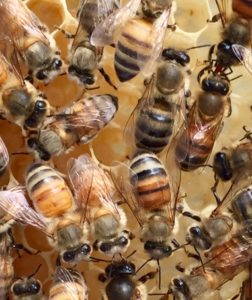 In order to answer all of these questions, we must first address the simple yet complex definition of veganism. Veganism, by definition, is a person who does not eat any food derived from animals and typically animal products. Some definitions also include excluding not just cruelty, but exploitation of the animal as well. Many people choose to be vegan for considerations of sustainability, the ethical factors behind it or their health.
In order to answer all of these questions, we must first address the simple yet complex definition of veganism. Veganism, by definition, is a person who does not eat any food derived from animals and typically animal products. Some definitions also include excluding not just cruelty, but exploitation of the animal as well. Many people choose to be vegan for considerations of sustainability, the ethical factors behind it or their health.
You may be starting to see why the honey debate could be confusing to some. Technically, yes it is derived from an animal, so it is not vegan. A main reason vegans have this debate with non-vegans is non-vegans are under the impression that if it does not hurt the animal then it is not a form of cruelty, therefore vegans should be allowed to eat honey. On the other hand, vegans believe that this honey should not be used for any human and should be left for the bees to consume. We are here to put our own Beepods spin on it and leave it up for debate after the end of this blog, whether you believe honey should be considered vegan or not.
The Unethical Way
It is true that honey is made by bees for bees and that their health may be sacrificed if it is harvested from them for our own use. They work hard to collect all of this honey by visiting up to 1500 flowers in order to collect nectar. It is no easy job and it does not stop there. The process of turning nectar into honey is a labor-intensive process for bees. Bees work hard for their honey just as we work hard for money.
In conventional beekeeping, many beekeepers seek to harvest the maximum amount of honey that is in the hive leaving the bees with a sugar substitute for the winter. This causes many of those colonies to die and some are deliberately killed by beekeepers in order to reduce cost. It is estimated that around 10-20 percent of colonies in the U.S are destroyed each winter.
Commercial honey bee colonies are specifically bred to increase the production of honey which leads to disease and large amounts of death. It is not uncommon for factory farm beekeepers to take extremely inhumane steps towards reproduction of the colony. Some may even clip the queen bee’s wings to prevent swarming and make it easy to find her. Some apiaries artificially inseminate their queens to control the genetics of their colonies. Hives may be removed if they are deemed too costly.
The honey industry, like many other industries, can be very economy driven. Many beekeepers are in it only for the money, and money is where their loyalty to these bees end. The welfare of bees is at the back of their mind, the only thing they are thinking about is commercial profit. The honey industry is not slowing down, if anything it is increasing and honey is being sold in great amounts.
The Beepods Way
By now, most of you are probably thinking how horrible all of that sounds. How can honey not be considered vegan? While we do agree with you, we are here to tell you that beekeeping does not have to look that way and it certainly doesn’t require artificial insemination, removing colonies, or harvesting all of their honey.
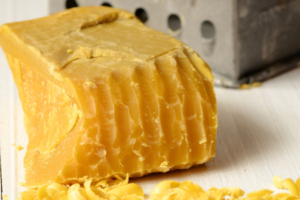
At Beepods, we have always strived for a safe and sustainable way to keep bees. A few of our methods include:
- Using a feather guider
- Using top-bar hive equipment
- Hosting Education programs
With all of this, Beepods has found a safe and sustainable environment for bees.
With all of this we are able to keep bees’ temperature regulated, provide routine inspections, provide education training to beekeepers to ensure safety, and most importantly provide food for bees to have in the winter time. After all, it is their food! Instead of feeding them sugar syrup like some beekeepers do, which is essentially junk food for bees, we let them eat the honey and we only remove honey that is left over in the Spring. Not only do they keep their honey, but Beepods makes honey bees’ year round health a priority by designing a winterizing kit that helps bees survive through cold winters by protecting them from the wind and keeping mice out.
We pride ourselves in being able to save the bees and not steal their food and this is where we go back to the debate of honey being vegan. By definition of excluding the cruelty and exploitation of animals, then Beepods trumps the definition of vegan! By no means, is it okay to treat bees unethically and there is no reason to. We have shown everyone that it is possible to keep bees, be sustainable, and most importantly, save the bees.
Elizabeth Allon
Latest posts by Elizabeth Allon (see all)
- Short But Mighty: The Stages of Life - January 26, 2022
- Honey Bees Vs. Highways - January 19, 2022
- 4 Ways to Save The Bees in 2022 - January 12, 2022

